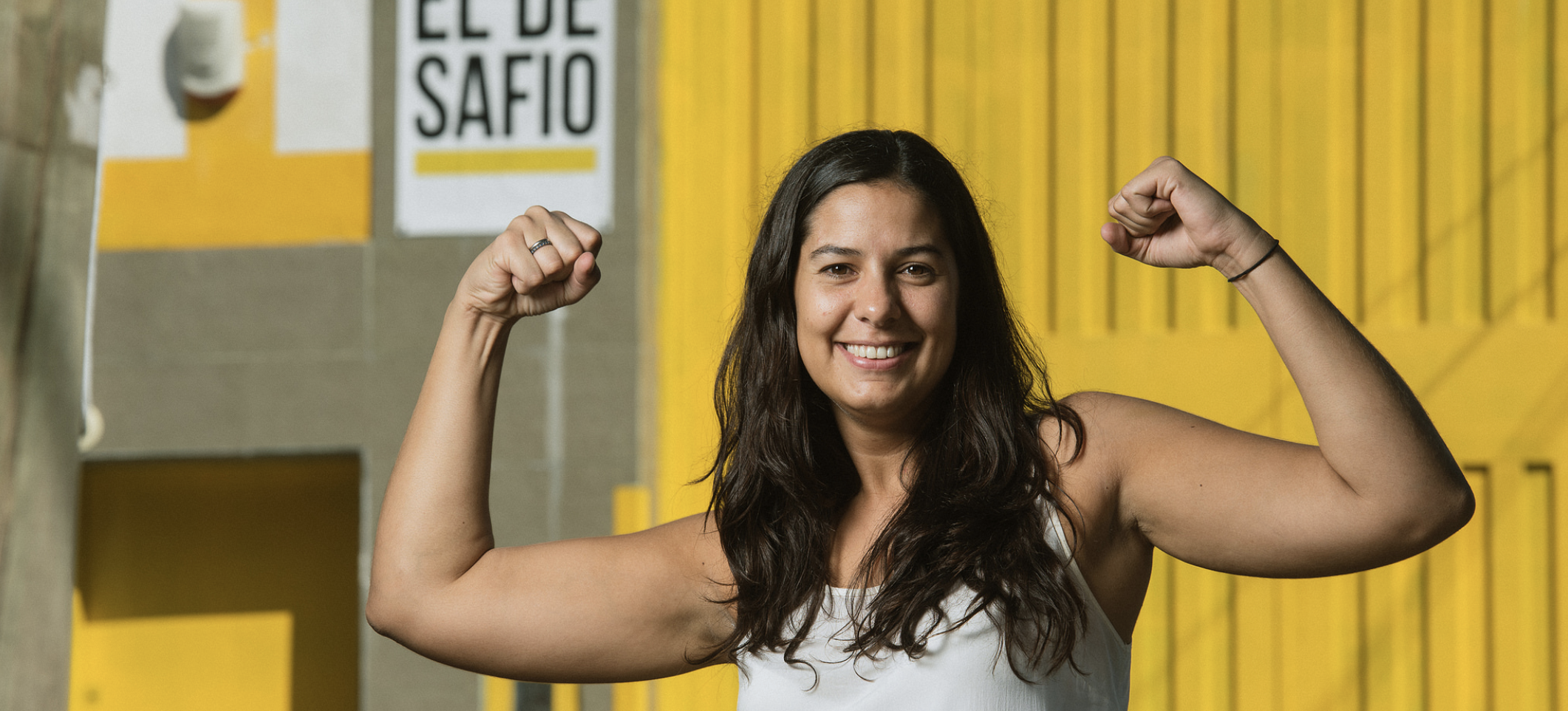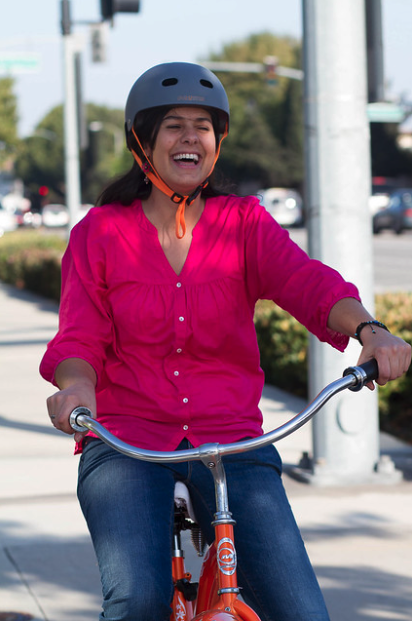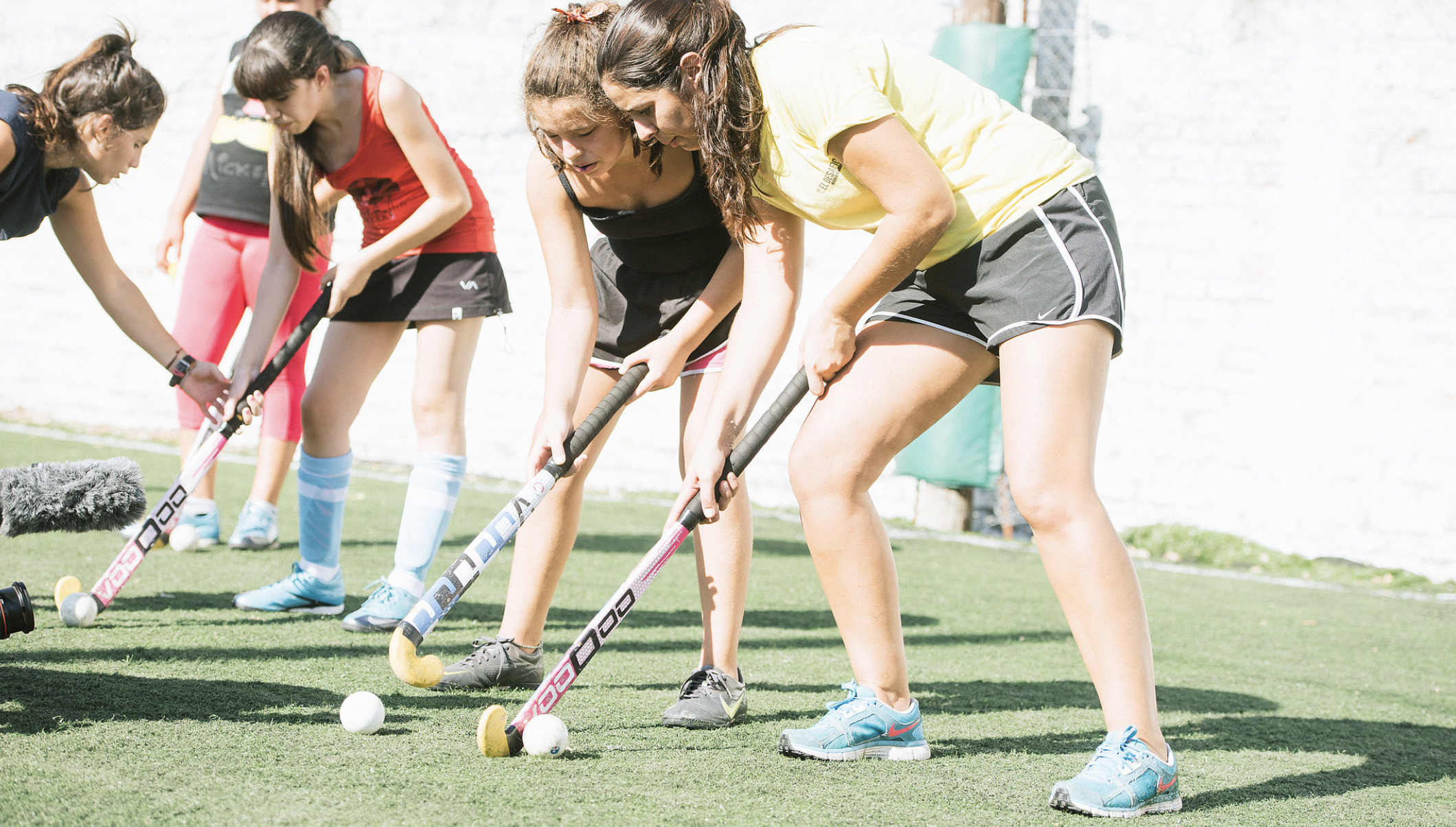
Poverty lurks in the shanty towns of Argentina, threatening the physical and emotional well-being of many people. Yes, children who live in these neighborhoods have inadequate means and resources, but Luz Amachastegui saw more missing. She saw in their faces a lack of hope, self-esteem, opportunities, and role models. That’s when she sprang into action. Luz would be their role model, help them build self-esteem, and provide opportunities.
She would give them hope.
Sports have always been part of Luz’s life; she played field hockey growing up and later started playing golf as well. She was aware of the power of sports in teaching self-efficacy. Luz used the lessons learned from sport—resilience, determination, teamwork—daily, and she knew that if she could share these lessons to those kids living in those shanty towns, they would be empowered, too. Not one to turn her back on injustices, Luz recognized that things needed to change, and she set out to make that happen.
During the week, Luz serves as the program director of El Desafío (“The Challenge”), a non-governmental organization whose mission is two fold: (1) to provide opportunities to youth in Argentina’s underserved communities to become analytical and conscious citizens using sports and (2) to develop programs to help end cycles of poverty. On the weekends, she runs her hockey foundation, Keep Going Hockey, organizing clinics for field hockey goalkeepers to train the next generation of aspiring young athletes. When she has a free moment, she serves as a social innovation business consultant for her secondary corporation, Evolution Factory.

Each of these organizations were providing opportunities for Argentina’s children, but Luz wanted to do more. She applied for and was accepted into the 2013 class of the Global Sports Mentoring Program (GSMP), where she learned things that today seem obvious to her. Mentored by Gwen Conley and Joan Coraggio of Saatchi & Saatchi in Los Angeles, Luz developed a global understanding of women’s situation in sports, learned how to better use sports to aid youth development of girls in Argentina, and discovered the power she had to make change happen in her community. Luz says that the connections she made with fellow GSMP participants was a “magical sensation, like I’ve known all of them for a lifetime. No cultural or language barriers, no race or color of skin, and no ideologies separate us. It feels like we are connected on a more profound level by our fearless idea of gender equality and how sports can help us achieve that mission.”
Using field hockey, she challenges girls to dream beyond stereotypical roles and see that women absolutely can be empowered business leaders and innovators. This challenge, however, reaches beyond the girls. Luz points out that “males in these neighborhoods don’t respect women at all. They don’t even respect their own mothers. They see them as only the person who cooks for them. So even though I am older, a teacher, and more experienced, I still have to find ways for them to respect me. So it’s not only about empowering girls in these neighborhoods, it’s about changing the way boys think about girls and men think about women. It’s about training a new generation.”
By no means will this be an easy challenge for Luz, but being the social justice warrior she is, she will not take no for an answer. She will continue to inspire, empower, and believe in Argentina’s girls.
